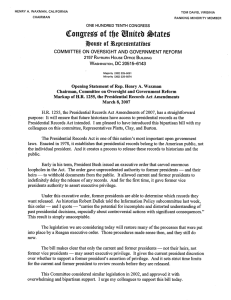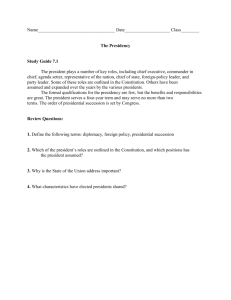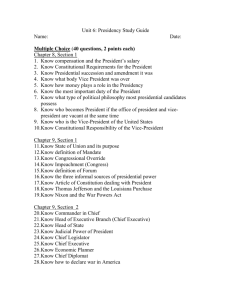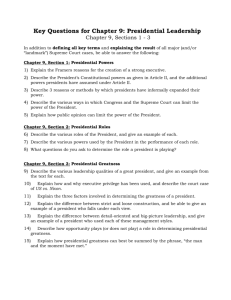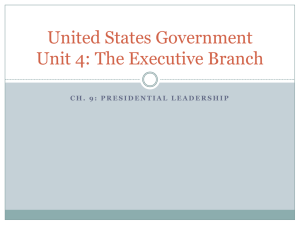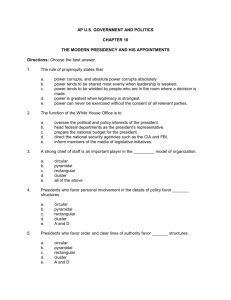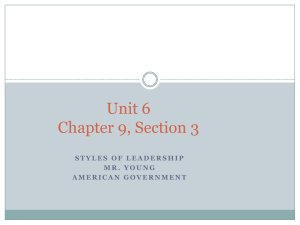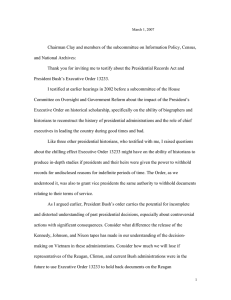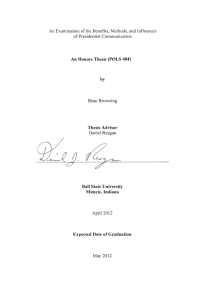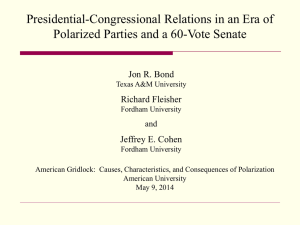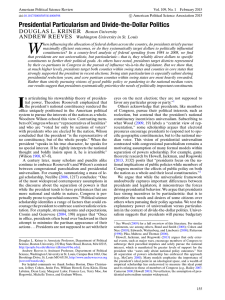Congree'e' o f the Hniteb atate$ HOUSE
advertisement
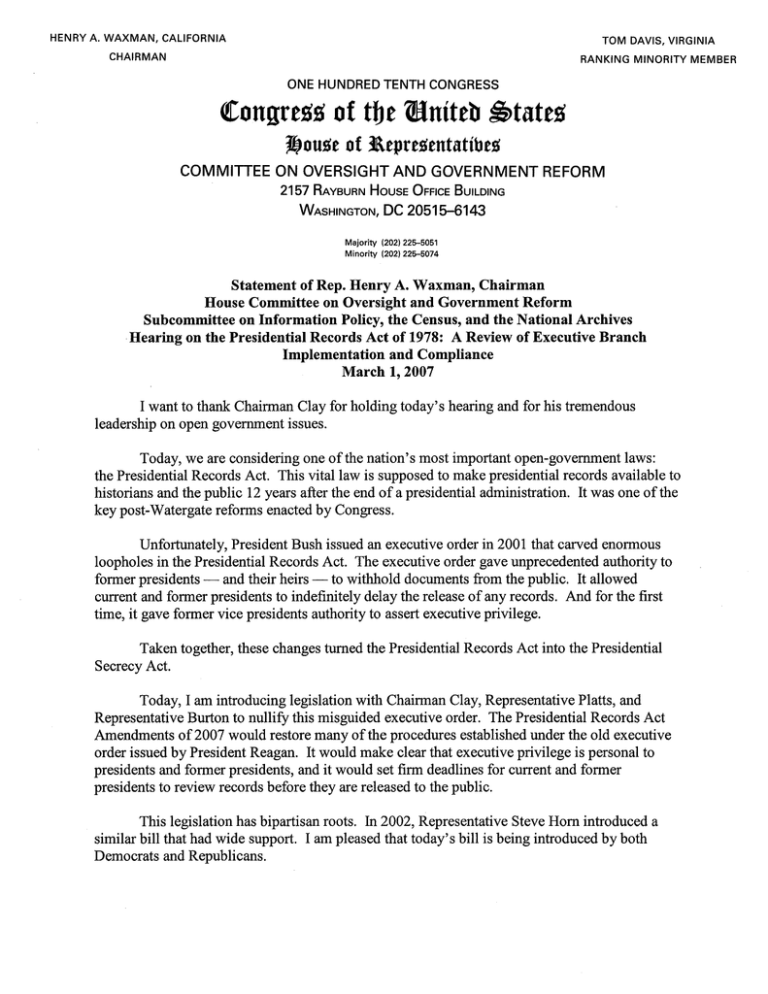
HENRY A. W A X M A N , CALIFORNIA T O M DAVIS, VIRGINIA CHAIRMAN RANKING MINORITY MEMBER ONE HUNDRED TENTH CONGRESS Congree'e' of the Hniteb atate$ Bouee of Bepreeentatibee COMMllTEE ON OVERSIGHT AND GOVERNMENT REFORM 2157 RAYBURNHOUSE OFFICE BUILDING WASHINGTON, DC 20515-6143 Majority (202) 225-5051 Minority (202) 2255074 Statement of Rep. Henry A. Waxman, Chairman House Committee on Oversight and Government Reform Subcommittee on Information Policy, the Census, and the National Archives Hearing on the Presidential Records Act of 1978: A Review of Executive Branch Implementation and Compliance March 1,2007 I want to thank Chairman Clay for holding today's hearing and for his tremendous leadership on open government issues. Today, we are considering one of the nation's most important open-government laws: the Presidential Records Act. This vital law is supposed to make presidential records available to historians and the public 12 years after the end of a presidential administration. It was one of the key post-Watergate reforms enacted by Congress. Unfortunately, President Bush issued an executive order in 2001 that carved enormous loopholes in the Presidential Records Act. The executive order gave unprecedented authority to former presidents -and their heirs -to withhold documents from the public. It allowed current and former presidents to indefinitely delay the release of any records. And for the first time, it gave former vice presidents authority to assert executive privilege. Taken together, these changes turned the Presidential Records Act into the Presidential Secrecy Act. Today, I am introducing legislation with Chairman Clay, Representative Platts, and Representative Burton to nullify this misguided executive order. The Presidential Records Act Amendments of 2007 would restore many of the procedures established under the old executive order issued by President Reagan. It would make clear that executive privilege is personal to presidents and former presidents, and it would set firm deadlines for current and former presidents to review records before they are released to the public. This legislation has bipartisan roots. In 2002, Representative Steve Horn introduced a similar bill that had wide support. I am pleased that today's bill is being introduced by both Democrats and Republicans. History is not partisan. Historians and scholars need access to our nation's history as it happened, not as a former president wished that it happened. President Gerald Ford once said, "I firmly believe that . . . presidential papers, except for the most highly sensitive documents involving our national security, should be made available to the public." That is exactly the sentiment that motivates the legislation we will be considering today. I look forward to hearing the testimony of today's witnesses.

